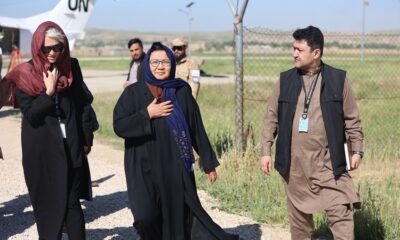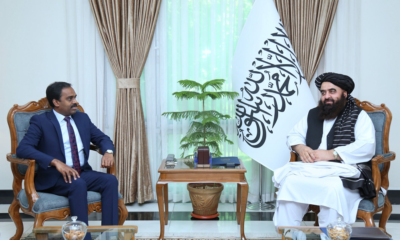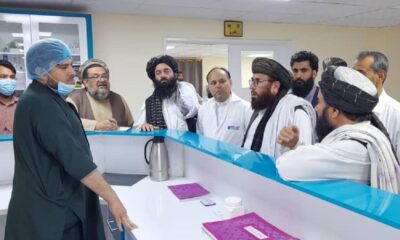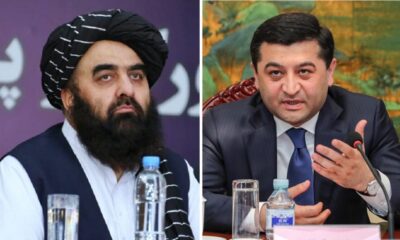Latest News
Poverty is a multi-dimensional and historic issue in Afghanistan: Ghani
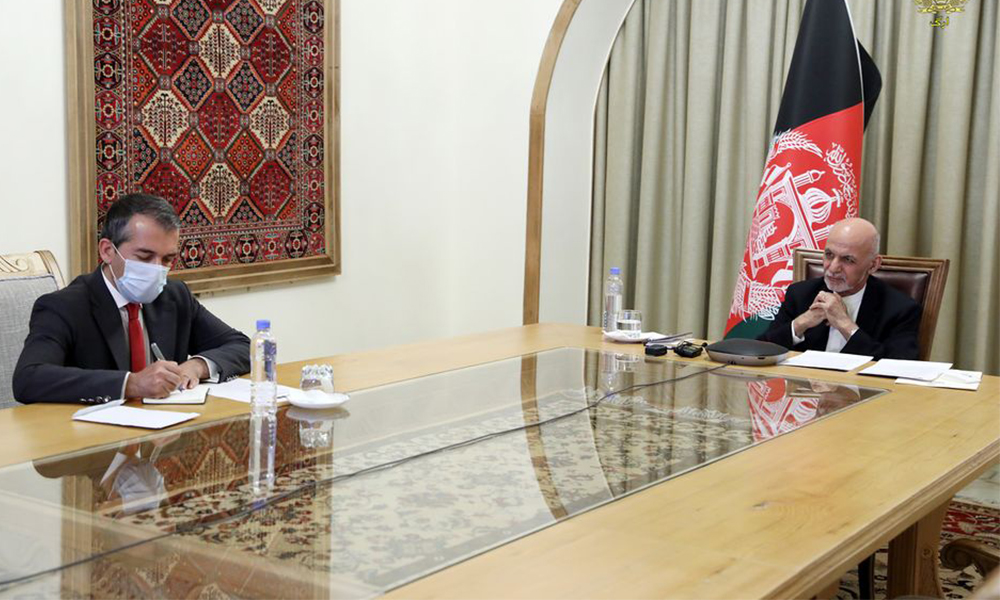
President Ghani says that the Covid-19 pandemic has plunged the world into turmoil, uncertainty, and unprecedented risk.
Addressing a side event – Poverty at the Cross Road: Using leadership and the multidimensional poverty index to build back better – on the sideline of the 75th session of United Nation General Assembly on Thursday, Ghani said that the pandemic has exposed existing vulnerabilities and shortcomings in our systems and normal modes of conduct.
“It wreaked havoc on lives and livelihoods, particularly for the poor and disadvantaged. It posed an unparalleled challenge to our scientific and technological capabilities, and an existential threat to our medical professionals who have been on the front lines of a war for which we were not prepared,” Ghani added.
“The virus arrived in Afghanistan at the end of February in Herat province, on the border with Iran. The virus peaked in June with an infection rate of 76%. As of September 23, we had recorded 1,446 deaths from the virus. Today, with the virus on the decline, the infection rate is fluctuating daily between 6% and 25%.”
Ghani stated that poverty is one of the most pervasive and complex problems the Afghan people face today and the COVID-19 pandemic” made that even worse for many people.”
He added that the most pressing issue facing people living in poverty is food insecurity.
“In February, it looked challenging because country after country was closing its borders and its economies. We were fortunate, however, to secure the full cooperation of our central Asian neighbors to keep the supply chains functioning.”
Ghani highlighted that poverty is a multi-dimensional and historic issue in Afghanistan. He said it certainly did not start with COVID-19, “so our policy response must also be multi-faceted and must also look far beyond the pandemic.”
President suggests the following priorities for responding to poverty in the country:
First, we need to reach the poor as directly as possible. The Citizen’s Charter is the vehicle of our national community development programs, including the implementation of the National Meal Program. The Citizen’s Charter program is a network of elected community councils in all 34 provinces, where 50% of council members are women.
We are determined to complete the issuance of electronic IDs to every citizen of the country so we can increase their access to mobile money. The goal is that within a year to 18 months, we will be able to reach the poor directly.
Second, we have to enhance our citizen’s assets. The key to this is increasing the productivity of land, labor, and water.
Third, we must align the goals of the market building, state-building, and nation-building. The unifying element here is investing in education, particularly girls’ education and the generation that was denied an education because of 40 years of conflict. Hence the need for a human capital strategy that is tailored to specific contexts.
Fourth, we must utilize our immense natural wealth, ranging from water, sun, and wind, for the generation of renewable energy, and we must tap into the equitable and efficient utilization of our estimated 1 trillion dollars worth of mineral wealth.
Fifth and most importantly, we have to make peace and continue to build peace. We are a country in conflict, losing hundreds of our people every week. Reaching an inclusive peace is the fundamental step in addressing the far-reaching roots of poverty in Afghanistan. The pain inflicted on Afghan society has left scars on each of us as individuals, and on our nation’s collective consciousness.
MPI’s utility lies both in providing a solid basis for policy formation and monitoring of policy implementation. We have, therefore, decided that our National Statistics and Information Authority should use and update it regularly.
Latest News
UNAMA chief visits northern Afghanistan, meets local officials including women
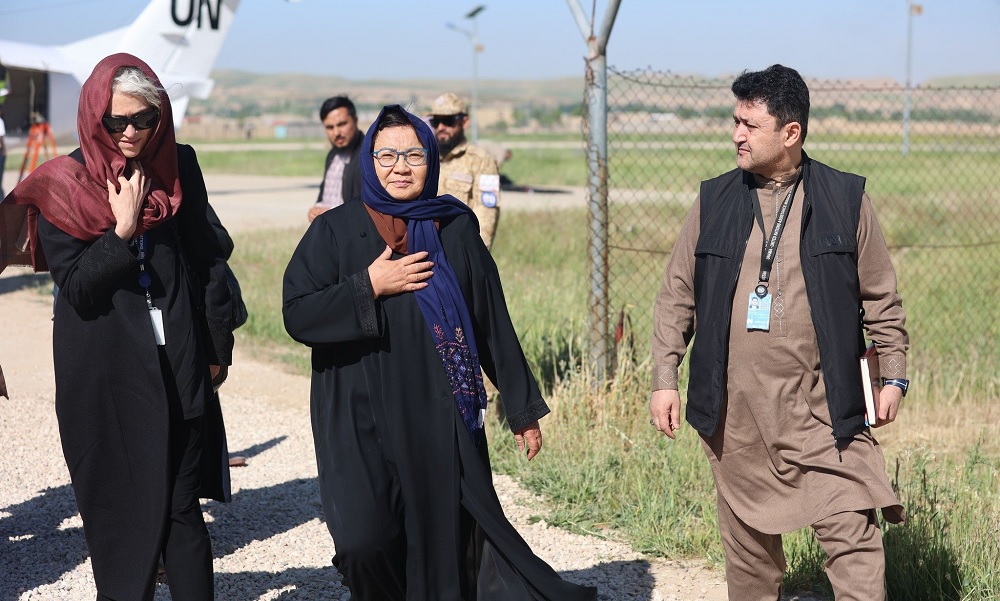
Roza Otunbayeva, Head of the United Nations Assistance Mission in Afghanistan (UNAMA), recently visited the city of Maimana in northern Afghanistan, where she met with local officials, entrepreneurs, and UN staff.
UNAMA wrote on its Facebook page on Sunday, that during the visit, entrepreneurs — including women — met with Otunbayeva, and requested support to facilitate access to new markets, particularly in Uzbekistan.
UNAMA further stated that among these entrepreneurs was a group of women who, with the support of the United Nations Development Programme (UNDP), had established a tailoring workshop.
They expressed their appreciation for the support received and spoke about the significant growth and development of their business.
UNAMA added that the organization remains committed to promoting economic opportunities and empowering Afghan communities, especially women.
Latest News
Senior Indian official meets with FM Muttaqi in Kabul
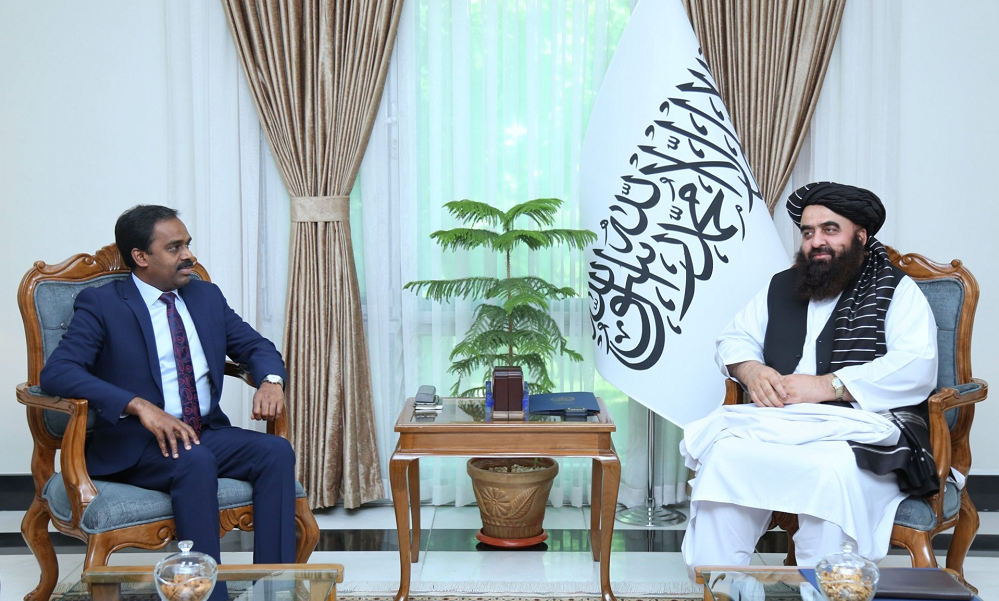
Anand Prakash, head of the Afghanistan, Iran and Pakistan Division of the Indian Ministry of External Affairs, met with Acting Foreign Minister Amir Khan Muttaqi in Kabul for talks on various issues.
According to a press release issued Sunday by the Afghan Foreign Ministry, bilateral political relations, trade, transit and recent political developments in the region were discussed in the meeting.
Muttaqi stressed the need for the expansion of diplomatic and economic relations between the two countries and explained that Afghanistan currently offers favorable opportunities for investment. He said Indian investors should take advantage of these opportunities.
He also said that facilities should be created for the movement of people between Afghanistan and India and the issuance of visas for medical purposes, students and businessmen should return to normal.
Meanwhile, Prakash said that relations with Afghanistan are important for India and he hopes that these relations will expand further in various fields.
He stressed that India will continue its cooperation with Afghanistan and wants to invest in some infrastructure projects and restart projects that were paused for some time.
The two sides also emphasized the expansion of relations, the exchange of delegations, visa facilitation and bilateral cooperation.
Latest News
Afghanistan ‘fully ready’ for Trans-Afghan railway project: Muttaqi
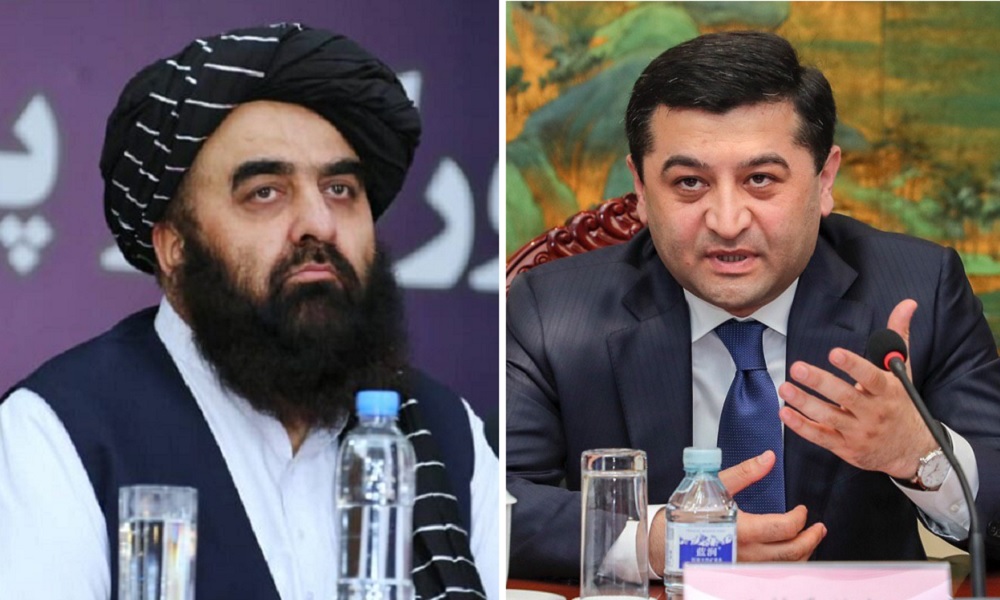
Acting Foreign Minister Amir Khan Muttaqi has said in a phone call with his Uzbek counterpart that Afghanistan is fully prepared for the implementation of the Trans-Afghan railway project.
During the call, the two sides discussed strengthening bilateral and multilateral relations, as well as expanding political, economic and transit cooperation, the Ministry of Foreign Affairs in Kabul said in a statement on Sunday.
Uzbek Foreign Minister Bakhtiyor Saidov noted that Afghanistan’s exports to Uzbekistan have tripled in the first four months of 2025 compared to last year. He vowed to create more facilities in the field of trade and transit between the two countries, especially in issuing visas to Afghan citizens.
Meanwhile, Amir Khan Muttaqi said that Afghanistan is fully prepared for the implementation of major economic projects such as the Trans-Afghan railway project and for the strengthening of political, trade and transit cooperation with Uzbekistan. He said that the existing opportunities should be utilized for the mutual benefit of the two countries.
The two sides also discussed the holding of a trilateral meeting between Afghanistan, Uzbekistan and Pakistan at the level of foreign ministers and agreed to coordinate through diplomatic channels to determine the exact date and place of the meeting.
The three neighboring countries signed an agreement in February 2021 to construct a 573-kilometer railway line through Afghanistan, connecting landlocked Central Asia to Pakistan seaports, with an estimated cost of $4.8 billion to enhance regional economic connectivity.
Pakistan’s Deputy Prime Minister and Foreign Minister Ishaq Dar held a telephone conversation with Uzbek foreign minister last Thursday to discuss the Trans-Afghan railway project.
Dar expressed hope that the three countries would soon sign a framework agreement on this important regional project.
-

 Sport4 days ago
Sport4 days agoSri Lanka A defeats Afghanistan A by 4 wickets in Abu Dhabi
-

 Business4 days ago
Business4 days agoAfghanistan’s growth prospects remain uncertain amid global uncertainty: World Bank report
-
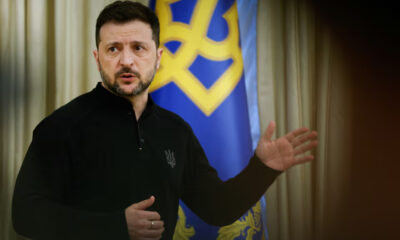
 World5 days ago
World5 days agoUkraine ready to hold talks with Russia once ceasefire in place, Zelenskiy says
-

 Latest News4 days ago
Latest News4 days agoAWCC activates new site in Nangarhar’s Kuz Kunar district
-

 Latest News3 days ago
Latest News3 days agoTarig Ali Bakheet and Japan’s Deputy Foreign Minister discuss Afghanistan’s situation
-

 Climate Change4 days ago
Climate Change4 days agoPowerful earthquake of 6.2 magnitude shakes Istanbul
-

 Business3 days ago
Business3 days agoPakistan’s deputy PM discusses Trans-Afghan Railway Line project with Uzbek FM
-

 Latest News4 days ago
Latest News4 days agoSpecial meeting will be held to launch Afghanistan–Russia joint commission, says Kabulov


